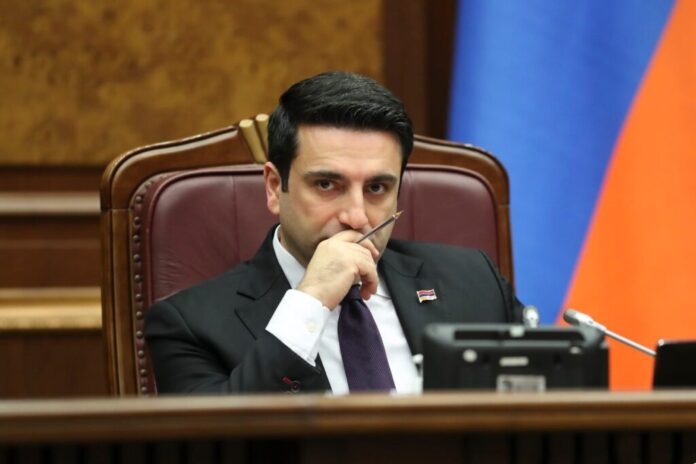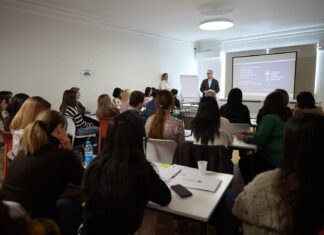By Gayane Saribekian
YEREVAN (Azatutyun) — Parliament speaker Alen Simonyan, a key political ally of Prime Minister Nikol Pashinyan, on Tuesday lambasted Nagorno-Karabakh’s ethnic Armenian population for fleeing the region following Azerbaijan’s large-scale military assault in September 2023.
Echoing Prime Minister Nikol Pashinyan’s earlier claims, he said that Karabakh’s army did not put up strong resistance against Azerbaijani troops.
Simonyan made the claims, strongly condemned by the Armenian opposition, when he was asked on February 11 by an exiled Karabakh reporter what Pashinyan’s government is doing to assert the Karabakh Armenians’ right to return to their homeland.
“You got out of there because it wasn’t safe, even though you could have stayed and fought,” he said. “But you got out.”
“You should have fought. You should have fought. You should have fought,” Simonyan repeated amid the journalist’s objections.








